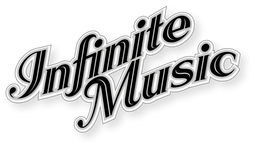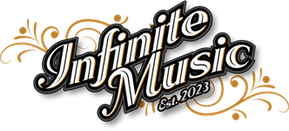Equipment You Need To Record Music At Home
Posted by ENGLANDER DAVIS

So you want to record your music at home… How exciting! We love seeing all the amazing things that our customers are doing with their music.
We live in an amazing world where it’s easy to share and express our love for music with each other, and there is a constantly growing community of talented musicians putting themselves out there.
If you’re looking to record music at home, this guide will help you reach that goal.
Start With The Basics!
Whether this is just a fun hobby for you, or you’re hoping to eventually turn it into something more, it’s always best to start off with some simple, quality pieces of equipment.
There’s no rush to have a whole room kitted out with the latest recording equipment (though, if money’s no object then by all means run with it).
For those on a tight budget, it's a good idea to plan out how much you're willing to spend, and then work from there. Audio equipment can get really expensive, really quickly. Ideally you want to find a cost effective solution that doesn’t compromise on quality.
So what do you need to get started?
A Computer
Now this could either be the cheapest piece of equipment or the most expensive you invest in… why? Well, most people already have a computer that is capable of helping them record music. If you’re just starting out, there’s really no point in buying a whole new one.
However, if you don’t have one, you will need to get one if you plan on recording.
Later down the road, you may want to invest in a faster computer that can handle a lot of processing. But for now any computer you have at home should get the job done, so long as it’s not a dinosaur.
Audio Interface
Your audio interface is what is going to connect your computer to the rest of your recording equipment.
You will want to make sure that you pick one that is compatible with your computer and suits your future goals.
Here are some things to consider:
- Input & Output: As minimum you will want 2-in and 2-out. However, if you are planning to record a lot of different things, you may want more.
- Computer Connectivity: Technology has been migrating to a USB-C connecting cable which offers faster speeds and lower latency, which can be incredibly useful for you. However, there are many other connection options that may suit your needs better
- Phantom Power: Many audio interfaces will come with this as standard, but you will want to be certain that yours has it if you plan to record with consider mics
Microphone
A studio microphone is one of the most basic and essential elements of your home studio. As you continue along your home recording journey, you will likely start to amass a hoard of different types and styles of microphones, from dynamic microphones to condenser mics.
To start off, it’s a good idea to invest in one really high quality microphone, as this will have a massive impact on how your voice and instruments will sound.
You don’t want a hiss or other background noise overwhelming your sound. It’s also a good idea to invest in a pop filter. This can be placed between a singer’s mouth to reduce, like the name suggests, pops.
Depending on what kind of instrument or sound you want to record, it can also change what microphone will best suit your needs. What works best for vocals will be completely different for what works for a bass or drums.
To get a more indepth recommendation on your next microphone, you can contact us online or visit us in store!
Headphones
When you are just starting, 1 pair of high quality closed back headphones are a necessity.
Audio Technica makes high quality, and durable closed back headphones that will help drown out other sounds as you listen back to your work.
In the future you may want to try out different types of headphones, especially if you will have someone else with you when working on your recording.
Open back headphones may be something you want to look into in the future, as they will offer even higher quality sound, however due to the sound leaking, they aren’t your priority in the beginning.
Digital Audio Workstation (DAW)
Your digital audio workstation (DAW) is the software that you use to record, edit, mix and master your music.
When you are just beginning, you may want to start out on a free program to decide whether you really want to commit to doing this.
Free programs will supply you with the basic tools and features that you need, however if you want to get more advanced features, then eventually you will want to invest in a paid DAW.
Depending on the audio interface you choose, it may also come with a DAW.
MIDI controller
A midi controller is a useful tool that will allow you to play thousands of different virtual instruments on your computer.
Very few people are a one man band, with the capability and tools to play every single instrument they need. Having a midi controller lets you produce music with ease, eliminating the need to record everything individually.
Studio Monitors
Studio monitors are an essential piece of home recording studio equipment, and it’s one of the things you don’t want to cheap out on.
Standard home speakers typically enhance and modify different frequencies in your music, whereas studio monitors provide a flat frequency. This helps with the mixing process, ensuring that your recording will sound good no matter what speakers they are played on.
Cables & Other Accessories
There are plenty of different studio accessories you can buy to enhance your recording experience. We recommend some basics such as longer microphone cables, stands and extensions.
You may want to also consider things such as acoustic treatment and acoustic panels, so you can control how the sound bounces off the walls in your room. This can have a drastic effect on the quality of your recording, so it’s definitely something to look into if you want to get serious.
Get Ready To Record
With these essentials you’ll be looking at a pretty sweet setup. Whether you want to start a podcast, sing your heart out or record your band's next EP or album, this list of equipment will help you get the job done.
As you grow and learn different things, you will naturally want to upgrade and expand out into different tools.
If you want any further help or instruction, you can always visit our friendly and quirky team at our Nambour music store, or chuck us a message online.


